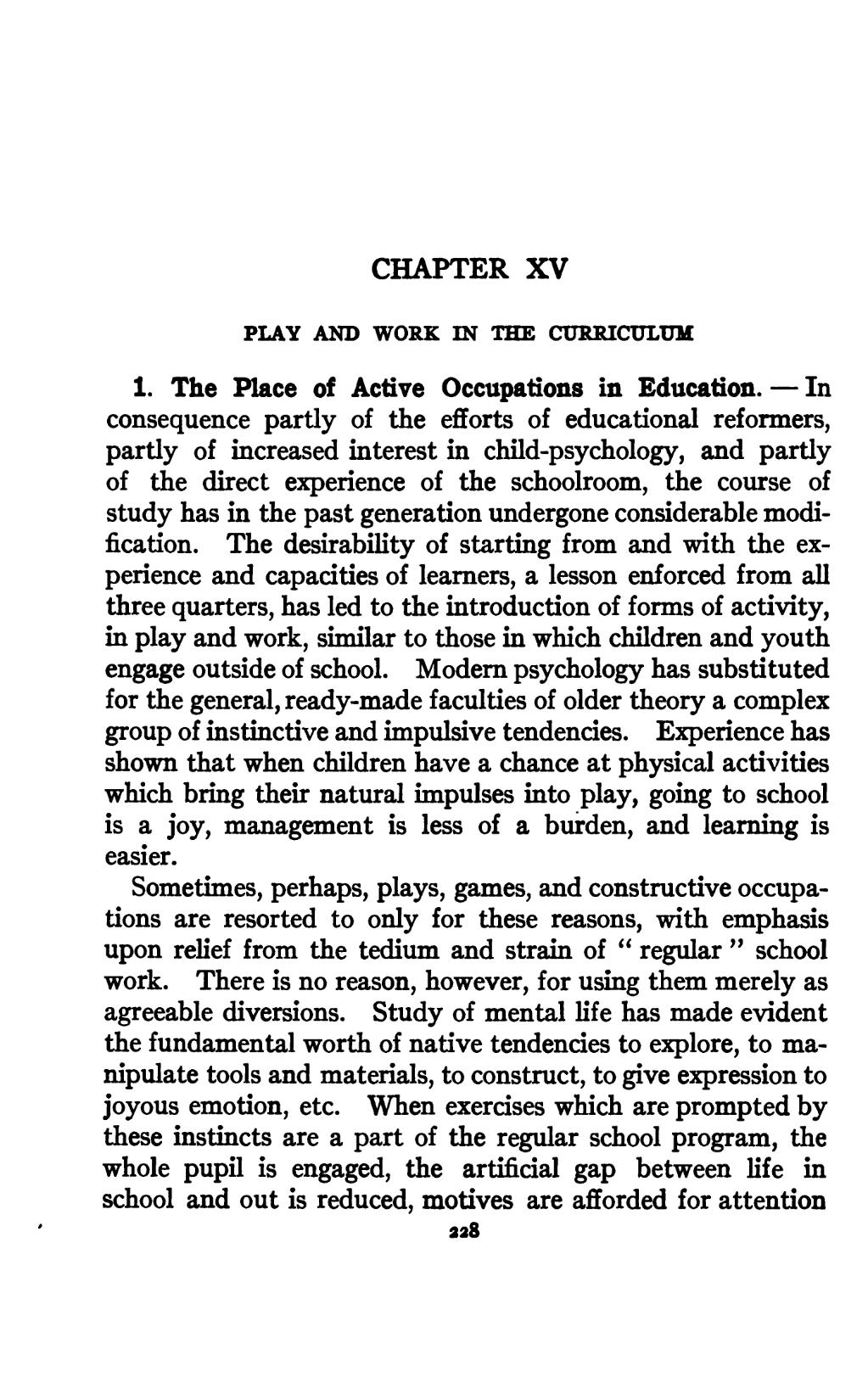CHAPTER XV
PLAY AND WORK IN THE CURRICULUM
1. The Place of Active Occupations in Education.—In consequence partly of the efforts of educational reformers, partly of increased interest in child-psychology, and partly of the direct experience of the schoolroom, the course of study has in the past generation undergone considerable modification. The desirability of starting from and with the experience and capacities of learners, a lesson enforced from all three quarters, has led to the introduction of forms of activity, in play and work, similar to those in which children and youth engage outside of school. Modern psychology has substituted for the general, ready-made faculties of older theory a complex group of instinctive and impulsive tendencies. Experience has shown that when children have a chance at physical activities which bring their natural impulses into play, going to school is a joy, management is less of a burden, and learning is easier.
Sometimes, perhaps, plays, games, and constructive occupations are resorted to only for these reasons, with emphasis upon relief from the tedium and strain of "regular" school work. There is no reason, however, for using them merely as agreeable diversions. Study of mental life has made evident the fundamental worth of native tendencies to explore, to manipulate tools and materials, to construct, to give expression to joyous emotion, etc. When exercises which are prompted by these instincts are a part of the regular school program, the whole pupil is engaged, the artificial gap between life in school and out is reduced, motives are afforded for attention
228

